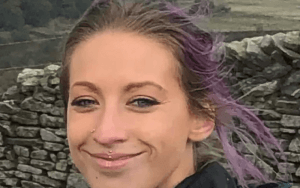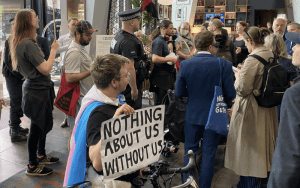New figures from the Department for Work and Pensions (DWP) have revealed that the number of secret reviews into the deaths of benefit claimants has increased sharply in the last couple of years.
The figures, secured by Disability News Service (DNS) through a freedom of information request, show for the first time how many of the internal process reviews (IPRs) have been launched in each of the last five six-month periods.
They show DWP has been starting an average of 46 to 50 death-related IPRs a year since the start of 2019.
This compares with an annual average of about 21 IPRs completed in 2016, 2017 and 2018.
Previous information released by DWP suggested there had been a sharp drop in the number of IPRs commissioned in 2020 and then a sudden increase in the first half of 2021.
But the new figures provide a clearer pattern that suggests a sudden change of DWP policy in late 2018, following the replacement of work and pensions secretary Esther McVey with Amber Rudd.
This appears to have led to a rapid rise in the number of IPRs, with 18 IPRs completed in 2018 following the death of a benefit claimant, but 47 started in 2019.
Figures previously released to DNS showed there were only 49 secret reviews into deaths completed between February 2012 and the autumn of 2014, and just nine between August 2014 and April 2016.
More than a decade of cases have linked DWP’s policies and practices to the deaths of disabled people, particularly those who were being assessed for employment and support allowance and personal independence payment and had experience of mental distress.
Debbie Abrahams, the Labour MP for Oldham East and Saddleworth, who has led parliamentary efforts to hold DWP to account on deaths linked to its actions, said: “A government’s first duty is to keep its citizens safe.
“This should be particularly so for the most vulnerable amongst us.
“Whilst this FoI shows an increase in internal reviews, many believe that these deaths are just the tip of the iceberg.
“The government can no longer keep marking their own homework and must instigate a full, independent, public inquiry if they have nothing to hide and truly want to help protect our society’s most vulnerable citizens.”
Asked if its own figures now showed a clear change in policy at the end of 2018, a DWP spokesperson said: “It is absolutely right we carry out internal reviews to check correct procedures were followed in some tragic cases, and identify learning to inform future policy and service.
“In recent years we have significantly strengthened our review team, investing in more support to investigate cases.
“We support millions of people every year and our priority is that they receive the benefits to which they’re entitled promptly, and receive a supportive and compassionate service.”
*The following organisations are among those that could be able to offer support if you have been affected by the issues raised in this article: Samaritans, Papyrus, Mind, SOS Silence of Suicide and Rethink
A note from the editor:
Please consider making a voluntary financial contribution to support the work of DNS and allow it to continue producing independent, carefully-researched news stories that focus on the lives and rights of disabled people and their user-led organisations.
Please do not contribute if you cannot afford to do so, and please note that DNS is not a charity. It is run and owned by disabled journalist John Pring and has been from its launch in April 2009.
Thank you for anything you can do to support the work of DNS…

 DWP helped cause mental distress of poverty-stricken benefit claimant who took her own life, says coroner
DWP helped cause mental distress of poverty-stricken benefit claimant who took her own life, says coroner Second wave of cuts could lead to ‘decimation’ of Access to Work scheme, but DWP refuses to comment
Second wave of cuts could lead to ‘decimation’ of Access to Work scheme, but DWP refuses to comment Disabled activists gate-crash DWP event and send message to ministers: ‘Your consultation is a sham’
Disabled activists gate-crash DWP event and send message to ministers: ‘Your consultation is a sham’